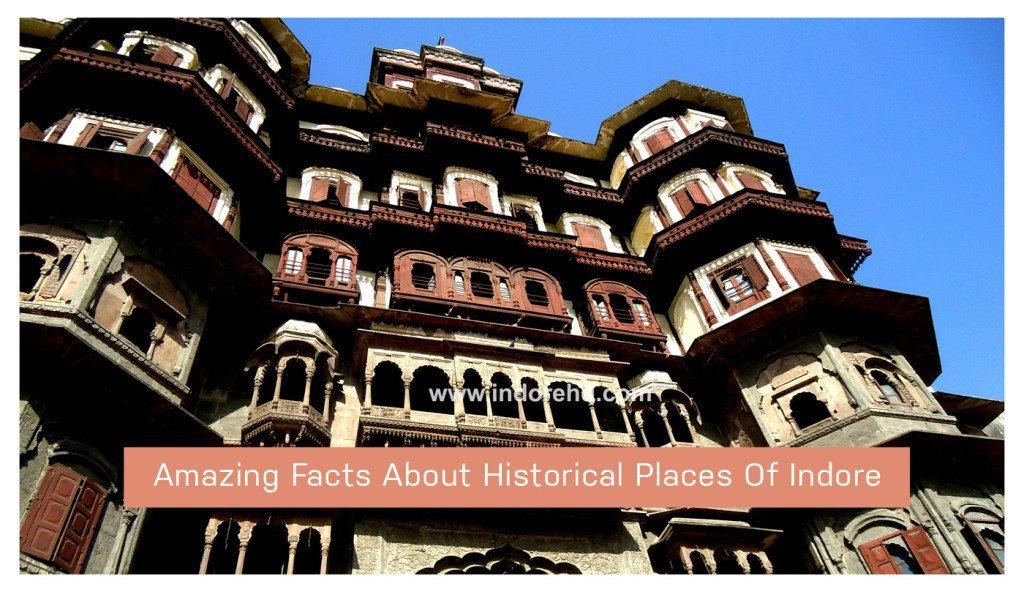Amazing Facts About Historical Places Of Indore
In 1710, a small establishment was set up on the banks of the great Saraswati River. As that establishment grew in size, it was subsequently ruled by the Mughals, the British and the Marathas. This establishment is known as the present day Indore. Over the years, these rulers left their marks in the form of great buildings and structures. Today these structures stand, speaking of their glorious past. Let’s walk through the city’s past.
Rajwada
Built nearly two centuries ago by the Holkars, this seven storied structure represents every Indori beat to the core. The great Rajwada stands at the heart of the city, swelling every passing Indori’s heart with pride. It is ornamented by many great halls, rooms, gardens, fountains and grand balconies. Its history is preserved in a small museum that resides in the palace itself.
Krishnapura Chhatris
The Holkars were known for their stunning skills with architecture. The Chhatri’s are shining examples of the same. Actually these Chhatris are the cenotaphs built in the memory of the Holkar rulers. The stone builts have stood the harsh tests of time.
Chhatri Bagh
Again, these were built in the memory of royal members of the Holkar dynasty. The name Chhatri comes from umbrella, symbol of pride. These beautiful dome like structures are covered by lush green gardens on all sides.
Daly College
Being one of the oldest co-educational boarding schools of the world, the Daly College was founded by Sir Henry Daly around 1870. The campus has an awe-inspiring view, equipped with all the modern facilities.
Kanch Mandir
The Kanch Mandir, as the name suggests, is built of glasses and mirrors. It was built by the famous cotton merchant Seth Hukumchand, in early 20th century. It has a majestic idol of Bhagwan Mahavira, made of shimmering black onyx. The idol can be seen 21 times in the glass reflections. This aspect is dedicated to the 21 Jain tirthankars.
Lal Bagh Palace
It was built by Maharaja Shivaji Rao Holkar between 1886 and 1921 on the bank of the River Kahn. The palace has a statue of Queen Victoria in its garden area. It also contains an English library, baroque and rococo dining rooms, a Palladian queen’s bedroom, and a Renaissance living room. Visitors are stunned by the exemplary artefacts used for decorating the castle.
Bada Ganpati Temple
Housing the largest Ganesha Idol in the world, Bada Ganpati is located near Rajwada. It was built in 1875 by Shri Dadhich. The temple is also famous as all ingredients of the idol as well as the temple, have remarkable mystic religious significance.
MG Town Hall
This imposing palace consists of four faced wall tower, temple, library and a children’s park. Previously it was known as the King Edward Hall. Able to house around 2000 people, this is built in Indo-Gothic style.
Sukh Niwas Palace
This was built as the summer resting place of the Holkars. Laden with luxurious intricacies it exhibits the lives lived by the Maharajas of that time. It also has a tunnel that connects the old palace to the Sukh Niwas Palace. The palace is surrounded by charming gardens on all sides.
Central Museum
The Central Museum is located near the Grand Post office square. It was built in 1929 by the Holkars. It exhibits finest collections from medieval and pre-medieval Indore. The collection includes Hindu sculptures, coins, arms, armors and carved land-titles.
